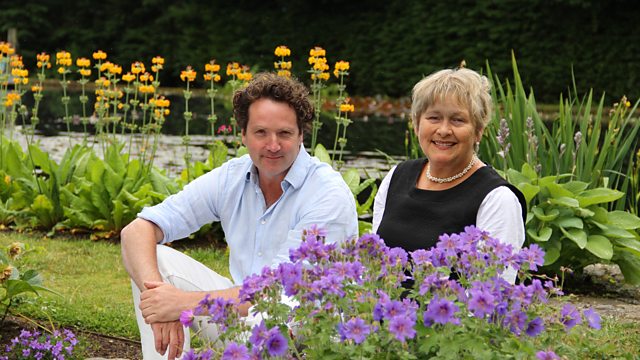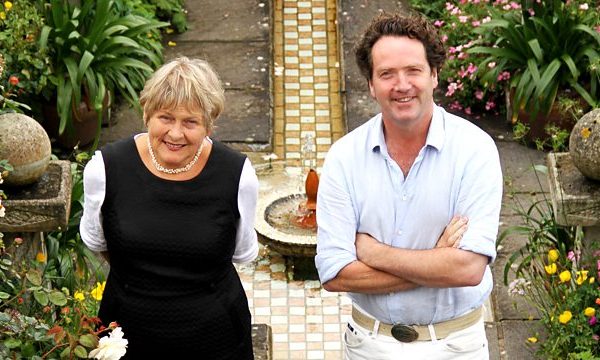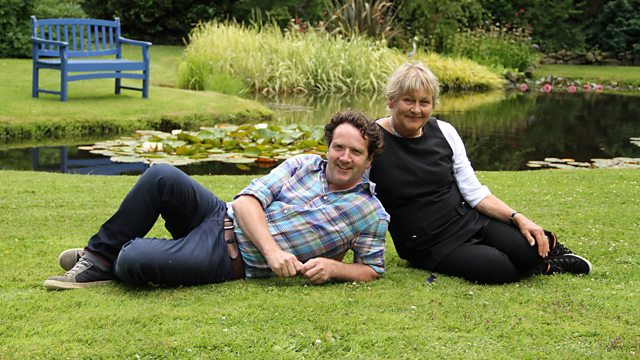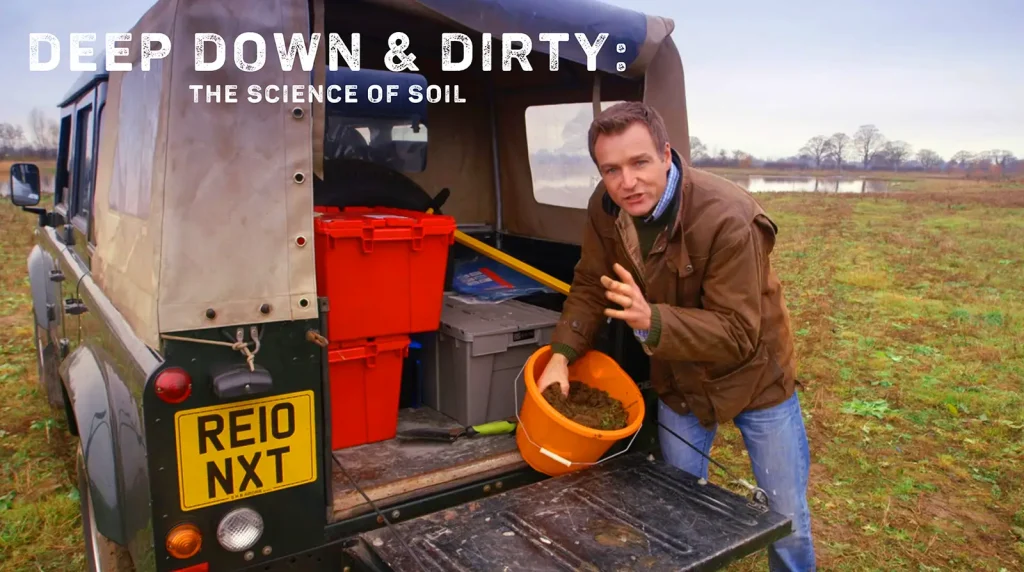Better Homes and Gardens episode 16 2023: Joh and Pete visit the cleverly designed Ravine House. Adam shows you some easy tips for keeping your home warm in winter. Fast Ed makes chocolate malted lava cakes. Embark on a journey with Joh and Pete as they explore the marvel of modern architecture – the Ravine House, a monument of innovative design. Let the allure of this extraordinary dwelling pique your curiosity, as it skillfully blends with the surrounding landscape, creating a seamless harmony with nature.
In a bid to equip you for the chilly months ahead, we’re excited to introduce a series of pragmatic, yet straightforward winterizing techniques presented by our expert, Adam. His simple, easy-to-follow tips are designed to help you maintain a cozy and warm atmosphere in your home during winter. Learn how to effectively insulate your home without breaking the bank, ensuring comfort and warmth even on the coldest days.
Finally, satisfy your sweet tooth with Fast Ed’s exquisite recipe for chocolate malted lava cakes. This decadent dessert is an irresistible blend of rich chocolate and malt, with a molten center that is sure to tantalize your.
Better Homes and Gardens episode 16 2023
Graham visits the Saumarez Homestead
Situated within the tranquil confines of Armidale, the Saumarez Homestead stands as a prominent symbol of historical grandeur and cultural heritage in the New England region of New South Wales. Its reputation as the heritage jewel is not merely due to its stunning architectural beauty, but also due to its significance in representing an important period in history, thereby, rightly earning this illustrious title.
The Homestead itself is an architectural marvel of the late Victorian and Edwardian eras, characterized by an intriguing fusion of intricate design, craftsmanship, and time-honored construction methods. The mansion, draped in history and elegance, is surrounded by carefully curated formal gardens and a host of rustic farm buildings that bear testament to the rich agricultural history of the area. Some of these buildings, preserving the nostalgia of a bygone era, date back as far as the 1830s, adding an extra layer of charm and history to this delightful property.
This evening, our very own Graham takes us on a leisurely journey through the grandeur of the homestead, and the extensive two-hectare grounds landscaped in the traditional English garden style. The estate grounds have been divided into different sections, each designed to accentuate a different aspect of the rural beauty found in this region.
One of the key highlights of the estate grounds is the magnificent rose garden, a captivating spectacle of vibrant colours and intoxicating scents. The picking garden provides a beautiful backdrop for those looking for a serene and tranquil location to enjoy the simple pleasures of rural life. Additionally, the expansive paddocks adorned with a collection of shade-giving trees that enhance the natural beauty of the landscape provide a calming, pastoral charm to the surroundings.
Over the years, the original enchantment of the homestead’s garden has not only been meticulously maintained but also enhanced with thoughtful restorations and the creation of new areas. This careful planning and sustained effort have further consolidated the Saumarez Homestead’s position as one of the largest and most successful rural properties in the New England region. This magnificent estate continues to delight visitors with its charm, tranquillity, and the timeless elegance that it has preserved over centuries.
How to create a Mediterranean garden
Embracing the art of gardening offers an unparalleled level of freedom, providing you with an open canvas where your creativity can take flight. A privilege of this creative venture is the ability to design and build a vision entirely on your terms. Imagine, for instance, if you’ve always been captivated by the alluring gardens indigenous to the Mediterranean region, why not take the exciting leap and reconstruct that in your personal outdoor space?
It’s not merely about mimicking a style; it’s about transporting an entire climate, an entire ethos right into your backyard. The Mediterranean design, teeming with vibrant colours and characterized by a rustic simplicity, fits like a glove with Australia’s weather conditions. The region’s distinct approach to gardening balances aesthetics with practicality, making it an apt choice for those living under the Aussie sun.
What’s more, these Mediterranean-inspired gardens stand out for their water-efficiency and low-maintenance nature. They’re specifically designed to thrive in drier, warmer climates, so not only will they flourish with less water, but their upkeep is also relatively minimal. That means less time fussing over the plants, and more time for you to sit back and appreciate the picturesque beauty of your personal Mediterranean oasis.
The charm of these gardens is undeniable. As you wander among the hardy olive trees, clusters of lavender and lush rosemary bushes, you’ll find your garden transformed into a visual and sensory treat that instantly transports you to a sunny Southern European landscape. So, if the thought of such a transformation stirs a sense of intrigue within you, do not be taken aback.
Indeed, you might feel an irresistible pull to dedicate your upcoming weekend to transforming your garden into a vibrant entertaining area inspired by the Southern European style. Picture the delight of your friends and family as they step into your backyard, only to find themselves momentarily transported to a Mediterranean haven. What an inspiring and rewarding project that could be! In the realm of gardening, your creativity truly knows no bounds.
No-fail chocolate malted lava cakes
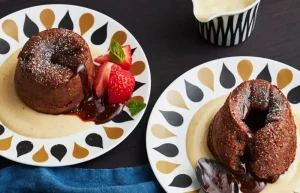
If you’re looking to make a restaurant-quality pudding, Ed has a cheat that will mean you’ll get the gooiest sauce every time. Making a ganache to go in the middle eliminates the need for under baking the pudding and potentially getting inconsistencies. But don’t be worried if this sounds difficult, the proof is in the pudding.
Method:
- For chocolate sauce, put 100ml of the cream in a small saucepan and bring to a simmer on medium heat. Remove from heat and whisk in 100g of the chocolate. Pour into a shallow tray. Refrigerate for 1 hour until firm.
- Preheat oven to 200°C fan-forced (220°C conventional). Grease and flour four 1-cup-capacity baking moulds and put on a tray. Line each mould base with baking paper.
- Put remaining chocolate and butter in a bowl and set over a saucepan of simmering water until just melted. Whisk in 3 of the eggs, yolk and brown sugar. Stir in flour and malt.
- Spoon half of the batter into prepared moulds. Refrigerate for 30 minutes until firm. Put a small scoop of frozen chocolate sauce onto each pudding (there will be sauce remaining), top with remaining batter, freeze for 1 hour until firm.
- Meanwhile, combine remaining cream, milk, caster sugar, vanilla and essence in a microwave-proof jug and heat on MEDIUM until very hot to touch, approximately 11/2 minutes. Put remaining eggs, cornflour and 2 tablespoons of water in a bowl; whisk to combine. Add hot cream mixture, whisk, return to microwave-proof jug. Microwave on MEDIUM in 30-second intervals, stirring after each, until custard just thickens.
- Bake puddings from frozen on a preheated oven tray for 12-15 minutes until tops just spring back. Set aside for 5 minutes; remove from moulds.
- Meanwhile, melt remaining frozen chocolate sauce in a saucepan on medium heat. Dust lava cakes with icing sugar and serve with custard, chocolate sauce, strawberries and mint.

